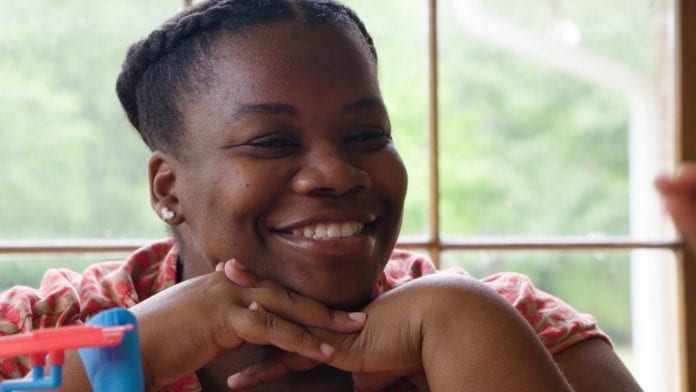At 17 years old, Terna Ityokumbul was like most high school students: consumed with friends, graduation and the future. Terna was an athlete all his life, and from a young age, he had a dream to play college football. As he continued to pursue this dream into his senior year of high school, he had a chance to make that dream a reality, receiving offers to play college football from multiple schools. However, there was one thing stopping him: his history of epileptic seizures. Terna suffered from what he calls “absence spells” in which he would lose awareness for about a minute. These were found to be focal seizures with a change in awareness. While these never affected his day-to-day life, for the first time, he realized his recent diagnosis of epilepsy could limit his future.
Despite these focal seizures, Terna was still able to play football. His episodes were infrequent, and he was able to see local doctors if he had any issues. Unfortunately, as time went on, Terna began to experience more severe and dangerous tonic-clonic seizures. This type of seizure is popularly known as “grand mal” and is the type of seizure most people envision when they think of epilepsy. Terna’s seizures began to spread to his whole brain, so that the staring spells progressed to convulsions with falling, then stiffening and jerking all over. While these were still only occasional, he began to recognize that his epilepsy now not only impacted his sense of well-being but could affect others as well.
At this point, while living in Pennsylvania, Terna’s life consisted of numerous tests, doctor visits, and overnight hospital stays. As one can imagine, this constant back and forth was leading to much frustration and exhaustion as it became almost a routine process for him. Along with this aggravation, Terna reached his breaking point after experiencing a tonic-clonic seizure so severe he dislocated his shoulder. Immediately, he decided to make health his number one priority and began researching epilepsy centers across the country. This is when Terna found Emory. After graduating from Bucknell University and looking for a new job opportunity, he became interested in Atlanta. Then after reading about Emory’s certified level 4 Epilepsy Center, Terna made his decision.




